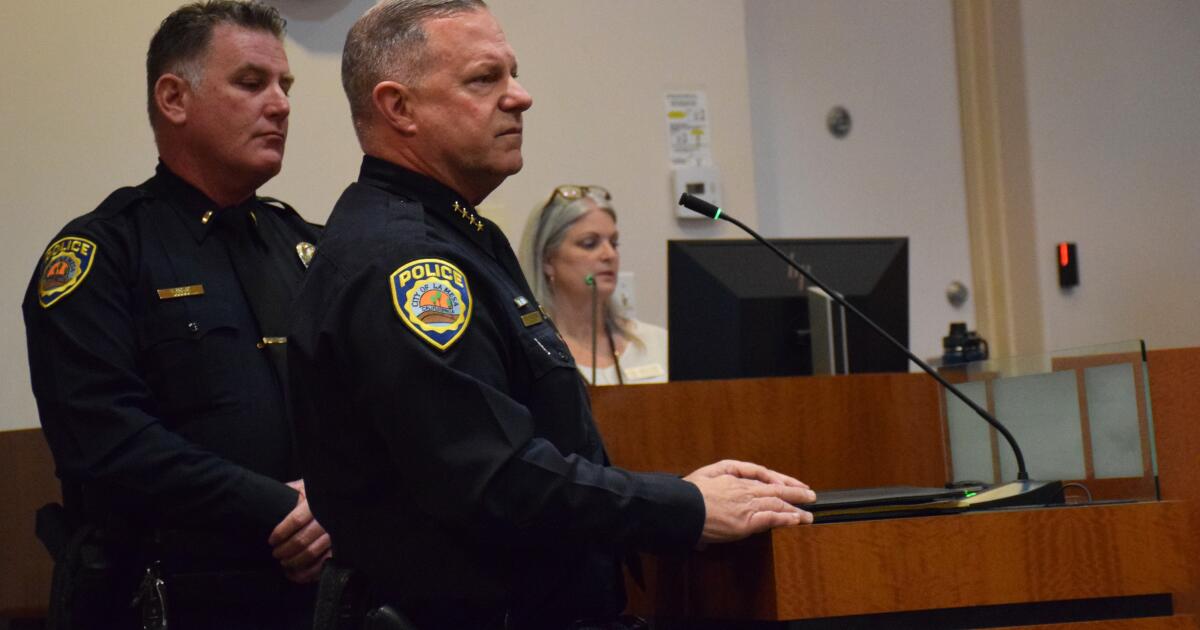

The La Mesa City Council on Tuesday approved the purchase of a controversial automated license plate recognition system already being used by several cities throughout the region.
The 4-1 decision allows the La Mesa Police Department to move forward with a plan to purchase 20 cameras from Flock Safety to install throughout the city. The cameras capture images of the rear view of passing vehicles, allowing police to see the license plates, as well as vehicle make, model and color. The cameras do not capture images of the drivers and passengers, nor do they detect an occupant’s face, race or gender.
The City Council vote followed a presentation by La Mesa Police Chief Ray Sweeney and Kristen MacLeod, a representative from Flock Safety, the camera system operator. The Police Department said the cameras will be an additional surveillance system to the vehicle-mounted license plate reader system La Mesa currently has through Vigilant Solutions.
Sweeney said the cameras will help solve crimes more quickly in the region amid staffing shortages within local police departments.
“The intent is to have cameras that work in conjunction with our state and county to solve those crimes,” Sweeney said. “We’re always looking to how we can better keep our community safe. This is one tool.”
Automated license plate reader cameras — which are already being used by police in Escondido, Oceanside, Carlsbad and San Diego as well as the San Diego County Sheriff’s Department — have often been viewed as controversial by privacy advocates. In August, The San Diego Union-Tribune reported that the surveillance tool also shares local data with out-of-state agencies, which some lawyers, privacy advocates and legislators say is illegal.
Sweeney told the City Council the department does not intend to share data with out-of-state agencies, but that it could be shared with other law enforcement departments within California.
As with the system used by the El Cajon Police Department, Sweeney said the department will retain the images for a maximum of 30 days, unless the image is needed for a pending case. That’s a shorter duration than storage for the department’s Vigilant Solutions vehicle-mounted system, which is stored for up to a year. The police chief added that the department would look at shortening the maximum storage time for the vehicle-mounted system to 30 days.
Vice Mayor Laura Lothian was the only council member to oppose the measure. At the start of Tuesday’s meeting, she gave an invocation quoting a passage from George Orwell’s “1984,” a dystopian fiction about totalitarianism and mass surveillance. Before voting, Lothian stated that she worried how the technology could be used in the future by subsequent government officials and police chiefs.





